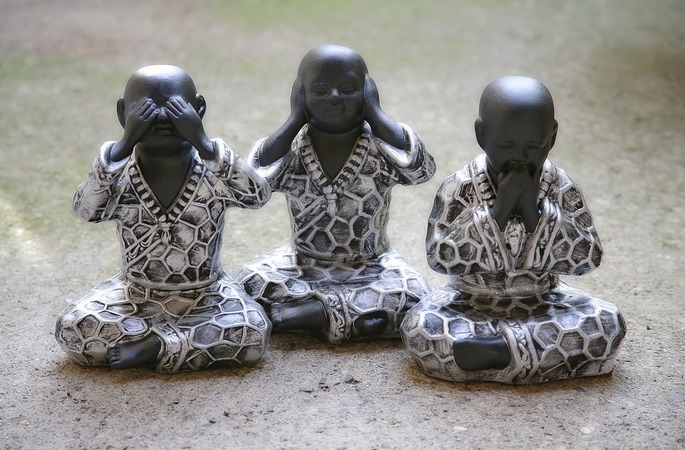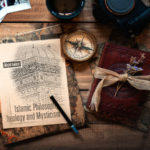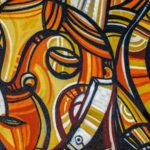I detest, very much, that word faith. I do so because of the way the word is abused, to convey anti-intellectual, illogical, and a blind acceptance of a conventional mode of thought without any further examination or probing. But I still use the overused ‘faith’ to affirm my acceptance of the presence of an absent God, with plenty of providence and gracious grace; but who, or that, does not provide maid services in my daily life. In that sense, I am also a man with ‘faith’ but with a big difference to an average regular church (or mosque/temple/gurudwara) goer.
Deep inside me, I am made of a metal that is strong and positive. But it doesn’t mean that I shy away from looking at, or seeing and acknowledging those authentic negative experiences, and plain, existent evil that I encounter in my daily life.
For example, I, at present, have an irritating cold. I don’t superficially imagine, for the sake of positive thought, that I am not sick and all is well with me. I recognise my sickness. But I don’t let that control my activity. Metaphorically, I can see the deep chasm. And yet I can dive head-on into it like a bald eagle with telescopic eyes!
In all these ways, I use my intuition to guide me as much as I allow observation, serviced by rationality, to alter my path. For me, both observation and intuition are like my left and right feet taking me from point A to point Z.
My feelings too are never totally excluded from my walk in my daily life. In the end, for me, intuition, observation, emotion and rationality are all tools that I can employ to serve my cause of creating something beautiful from the formless chaos.
When life appears purposeless, and pain is in abundance in my daily life, I will try to practise patience, carving gradually, like a sculptor sculpting from a shapeless stone or wood, a purpose for my being damned to continue life.
This is where I need to visualise in faith that design in my mind. Often the project is vague and evolves into a different unexpected image at the end, like my present journal to which I keep adding words and spaces.
However, as Lao Tzu has said, ‘A thousand-mile journey begins with a single step‘. And I begin right where I am with the date, which is not mine but one that is given to me, as the marble I am called to chisel. As I do this, I also taste and texture my experiences — good and bad — from which I describe my metaphysical world, checking it with the ancient writings.
Rather than breaking my head over any mistakes in either my walk with ‘the Lord‘, or the description of that invisible companion of my journey, I keep modifying my ventures, frequently ending up saying, or praying, ‘Forgive me for asking for forgiveness‘. I think I learnt this from Jalaluddin Rumi, that great poet-philosopher mystic.
In the end, I am, reasonably, at ease with both good and evil, plenty and scarcity, heaven and hell that intrude on my everyday life. Achieving that poise is my purpose; seeking God for God’s sake is my religion and not prompted by my inclination to heaven or fear of hell.
Did that Zen Master, first, and later Osho, suggest a kind of poise when the latter narrated the following story: Zen master, Bokuju was once telling his disciples, ‘All is perfect!’ An old man stood up and showed his hunchback: ‘What about me? I am a hunch back. What do you have to say?’ Bokuju replied, ‘I have never seen such a perfect hunchback in all my life!’



